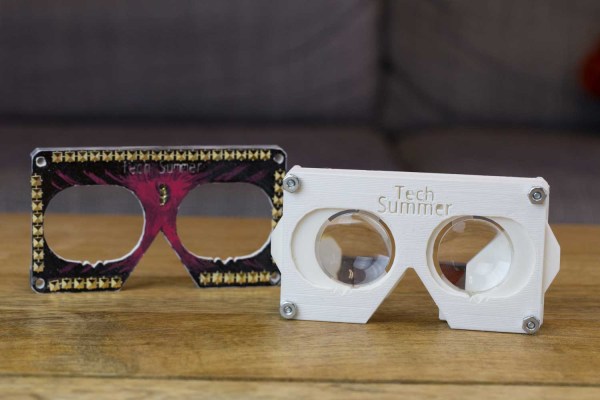Hardware, as the saying goes, is hard, but today a startup has raised some money for a manufacturing platform that it believes can make the prospect of starting and running hardware businesses a little easier. Fictiv, which positions itself as a kind of AWS for manufacturing — providing a platform both to design components and help get them produced — has raised $33 million, money that it will use to continue expanding its production ecosystem, the range of components that it can make and to grow its customer base.
The company is not disclosing its valuation, but, according to PitchBook, Fictiv was valued at around $65 million post-money in its last fundraise, which could put the company at around $100 million with this latest injection. This Series C was led by G2VP, with new strategic investor Mitsui & Co. and previous backers Accel, Bill Gates, Intel Capital, Sinovation and Tandon Group also participating. Fictiv has raised $58 million to date.
“Injection” may be the operative word here — or at least one of them. Fictiv today works across manufacturing plants in China and the Bay Area, covering a range of processes, including injection molding, CNC machining, 3D printing and urethane casting, covering a variety of materials. Customers use the company’s cloud-based software to design and order parts, which are routed by Fictiv to the plants best suited to make them.
“Fictiv does not own any machines, we are a cloud based network of hundreds of manufacturers both domestic and overseas. Today, that is mostly centered in the US and China, but this round will enable us to strategically grow our network to add new capabilities, increase access to materials and provide customers with additional capacity. But it’s important to note that our goal is not to build the world’s largest network of manufacturers, rather it’s highest quality network,” wrote Dave Evans, the CEO and co-founder (with Nate Evans) of Fictiv, in an emailed interview.
Current customers include the likes of Sphero and Facebook, which has used Fictiv’s services for prototyping and creating small runs of devices (like the one pictured above).
The problem that Fictiv is solving has been a persistent one in the world of hardware: making prototypes can cost a lot and be very inefficient, and that’s before you move into full-scale manufacturing, which can be challenging even with economies of scale. It’s also a very crowded field, with a number of different companies all vying to help fill the role of manufacturing enabler (and it is a field also littered with failures). But over the years, we’ve seen a lot of advances in manufacturing tech, with the trade-off that some of the work it takes on freeing up staff to work on other challenges.
More recently, companies have been feeling an extra squeeze by way of the trade tensions between the U.S., a key market for sales, and China, which has a strong hold on efficient and cheap manufacturing (as well as an interesting and large sales market).
“The uncertainty companies feel under the threat of trade wars are forcing the industry to shine a light on the lack of investment that has been made in manufacturing technology,” Evans said. “Threats of tariffs and trade wars are not new, but that, along with other pressures like materials shortages, amplify the need for product companies to think about how to build responsive supply chains. Today’s supply chains can take years to establish, and those time frames do not align with the speed of innovation and the responsiveness required by product companies today. Designers and developers must design supply chains that are equally nimble and agile. That’s the role of Fictiv.”
The AWS comparison that Fictiv likes to use extends not only to the concept that Amazon has perfected — of outsourcing expensive aspects of an operation to a third-party that can reduce the cost through economies of scale — but also to the emphasis on using cloud services to speed up certain processes. The company’s aim, Evans said, is to enable designers to “create hardware at the speed of software.”
Evans himself was the first hire for Ford’s innovation lab in Silicon Valley, overseeing prototyping infotainment systems in automotive dashboards. “My frustration trying to source vendors and manage supply chains — especially while I watched my software colleagues fire through new cycles at incredible speed — directly motivated me to create Fictiv,” he said. The company has attracted “intense interest” from backers in part also because of this problem, he added.
“Investors and others realize that manufacturing — like other industries before it [such as] finance, retail, travel — is having its technology moment,” he said.
“We are excited to be part of the digital transformation of the status quo in manufacturing,” said Daniel Oros, partner at G2VP, in a statement. “Fictiv’s innovative tools and services address the critical gap in contract manufacturing that will lead to a massive shift in how consumer and industrial products are manufactured.”
